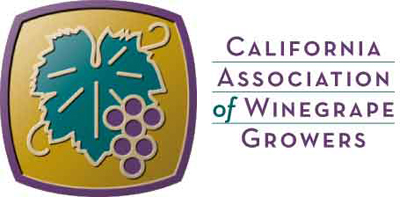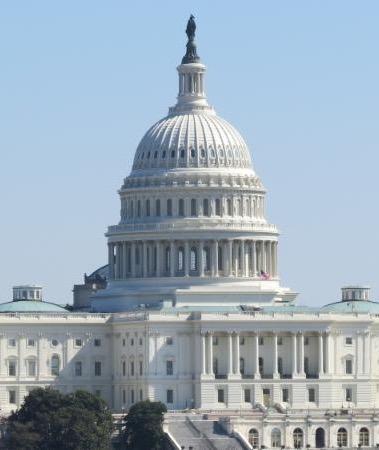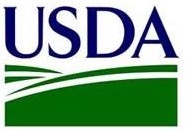November 7
Select Committees on Wine - Joint Hearing, UCSB
November 9
Regional Dinner Honoring Aaron Lange, Lodi
November 9-10
CAWG Board of Directors meeting, Lodi
January 23-25, 2018
Unified Wine & Grape Symposium, Sacramento
February 22-23, 2018
CAWG Board of Directors meeting, Temecula
|
CAWG's preferred partner
for insurance products
for more than 16 years.
Group Workers' Comp
Wine Industry Package
Federal Crop Insurance
Employee Benefits
For more info:
888-640-0593
or
Paid Sponsorship
|

Country Insurance Company Providing the very best California crop insurance services
|

Want to advertise in
eNews? Call 916-379-8995
|
|
|
|
| |
Government Agencies Offer Assistance to Wildfire Victims
A listing of numerous government agency resources that will aid in recovery from the wildfires is posted on the CDFA website. Agencies include the California Employment Development Office (disaster unemployment assistance), USDA (Farm Service Agency, Risk Management Agency, Natural Resources Conservation Service and Rural Development) and UC ANR Extension. >
WEBSITE
The Office of Emergency Services' Wildfire Recovery website provides an array of resources (local assistance, debris removal, records replacement, financial, etc.) >
WEBSITE
|
Town Hall Meeting on Wildfire Legal Issues to be Held at Silverado
Residents and business owners affected by the Santa Rosa, Napa, Sonoma and Calistoga wildfires are invited to attend an informational meeting that will serve as a resource for victims seeking guidance and an opportunity to discuss upcoming challenges facing the communities. Various insurance issues will be covered - how and when to make a claim, what to do about your mortgage if your home was destroyed, concerns of erosion and landslides when the rains return, and possible recovery of uninsured losses. Sponsored by CAWG member Dickenson, Peatman & Fogarty.
WHEN
: Nov. 1 / 5 p.m.
WHERE:
Silverado Country Club (main ballroom), 1600 Atlas Peak Road, Napa
|
National Wildlife Federation Reports on Megafire Crisis, Offers Recommendations
In a report released last week, The National Wildlife Federation highlights the dramatic increase in the size and number of wildfires and contributing factors. The report also calls for immediate legislative action and adequate funding to reduce threats from megafires.
"Much has been said, and politicized, about the steadily intensifying fire seasons in the West," said
Brian Brooks, executive director of the Idaho Wildlife Federation.
"Some are quick to place blame or capitalize on political opportunities, yet nothing gets done to address the real problem. Here is a report with clear and concise fire science that should be used to guide forest restoration and fire adaptation, and ultimately should lead to a fire funding fix."
|
House Judiciary Committee Passes Immigration Bills

T
he House Judiciary Committee yesterday passed two important immigration bills of interest to agricultural employers: 1) the Agricultural Guestworker Act (H.R. 4092) and 2) the Legal Workforce Act (H.R. 3711).
AG GUESTWORKER ACT:
Early this month, the Judiciary Committee was scheduled to consider this bill authored by committee chair Bob Goodlatte (R-Va.), which would establish a new H-2C guestworker program. However, opposition from Republican members of the committee forced Goodlatte to delay markup and revise his bill to satisfy anti-immigrant opponents. The version of the guestworker bill passed by the committee yesterday (by a 17-16 vote) is substantially worse than the original bill.
Currently, H.R. 4092 would require all unauthorized immigrant agricultural workers to return home before they are permitted to participate in the H-2C program, and until these workers gain status under the H-2C program they would be subject to enforcement actions. The bill provides 410,000 H-2C visas, which is 90,000 fewer than in the original bill, and all H-2C workers would have to have health insurance to participate in the program. It's the responsibility of an H-2C guestworker to have health insurance, but presumably the participating employer could pay for the coverage. Failure to obtain and keep health insurance would result in a worker's loss of status under the H-2C program.
CAWG is very disappointed with the direction H.R. 4092 has taken, but the association will work with other farm groups to improve the bill on the House floor and in the Senate.
LEGAL WORKFORCE ACT: Introduced by Rep. Lamar Smith (R-Texas), it would mandate employers use E-Verify for all new hires; the mandate would apply to all agricultural employers 18 months after enactment. CAWG strongly opposes the imposition of a mandatory E-Verify requirement, until an adequate and effective agricultural guestworker program is established.
|
Wine, Winegrape Projects Receive USDA Specialty Crop Grant Funding

California received more than $19 million in federal grant funding from the 2017 Specialty Crop Block Grant Program.
Several projects that focus on
wine or winegrapes are among the 55 funded projects.
Additionally, there are fixed-amount awards to fund projects that address workforce concerns throughout the specialty crop supply chain, including labor regulations, securing skilled and unskilled workers, and training the existing workforce to effectively utilize new technologies.
Project Titles:
--San Luis Obispo Coast Wine Country Association: California Grown, SLO Coast Grown (marketing campaign)
--Paso Robles Wine Country Alliance: Paso Robles Wine in the Sunshine State (marketing campaign targeted to Florida consumers)
--Sonoma County Winegrape Commission: Growing Demand for Sustainable Sonoma Wine Among Millenial Consumers (marketing campaign)
--Vineyard Team: SIP'ing Sustainably, Increasing Awareness and Sales Through Targeted Marketing of SIP Certified Wines (marketing and sales)
--Sierra Vintners: Increasing Sales and Awareness of Winegrape Products in Nevada County (marketing and public relations)
--Stanislaus Farm Supply: Helping SJV Specialty Crop Growers Adopt Responsible Farming Methods Through Training and Education
--USDA-ARS: Managing Fungicide Resistance in Botrytis Cinerea on Wine and Table Grape, Strawberry and Blueberry
--California Sustainable Winegrowing Alliance: Increasing the Viability of California Winegrowers Through Sustainability Education
|
Government Relations Capitol Report

CALIFORNIA UNIONS FACING U.S. SUPREME COURT DECISION
As unions dole out millions in campaign spending, the most powerful influence in California's State Capitol is organized labor. Much of the political activities by unions is funded by "fair share" fees.
Fair share fees are collected from workers who chose not to join bargaining groups, but may benefit from union representation. Some would argue that using this money for political purposes undermines the First Amendment rights of those employees unless the worker agrees. Imagine a politically-active worker seeing her/his fair share money spent to elect lawmakers having an opposite political view.
In the next few weeks, the U.S. Supreme Court is set to take up this issue in Janus vs. AFSCME, the Illinois lawsuit that challenges fair share fees collected by unions in 22 states. With Neil Gorsuch on the bench, unions anticipate a 5-4 decision banning these fees.
This could drive down membership by as much as 30 percent and substantially change how unions organize and operate. Such a decision could also significantly curtail unions' political spending, thereby electing more moderate lawmakers and leveling the playing field in California's statehouse.
|
Reminder: State Minimum Wage Increases on Jan. 1
Effective Jan. 1, 2018, California's minimum wage will increase to $10.50 per hour for employers with 25 or fewer employees. The rate will increase from $10.50 per hour to $11 per hour for employers with 26 or more employees. The increase is a result of SB 3, signed into law by Gov. Brown in 2016. The minimum wage will be adjusted on an annual basis until it reaches $15 per hour in 2022 for large businesses and 2023 for small businesses. The California Chamber of Commerce has a free white
paper -
2018 Minimum Wage Hike Brings Changes for California Employers
-
with information about how to prepare for the increase.
|
VINEYARDS & WINE
A Washington grower with 5,000 acres of vineyards has invested in three $500,000 mechanical harvesters.
Forbes, Oct. 20
The Santa Maria Valley is by no means an undiscovered region. It's the second-oldest designated AVA in the state, after Napa Valley.
SLO Tribune, Oct. 18
Professors and students are doing award-winning research at the 6-month-old lab.
Mustang News, Oct. 10
WILDFIRES
Jim Lapsley with the UC Agricultural Issues Center gives a 2+ minute radio interview.
WBUR Here & Now, Oct. 20
Wineries damaged by wildfires are starting insurance claims, and at least some of the smaller vintners are likely to find limits in their policies mean payouts fall short of rebuilding costs.
Reuters, Oct. 17
|
California Vineyards Awarded Water Use Efficiency Grants
Several California vineyard operations are among the recipients of grants through a
joint program
of CDFA and the Department of Water Resources
. The grant funding provided in the program is intended to address water use efficiency, conservation and reduction; greenhouse gas emission reductions; groundwater protection and sustainability of agricultural operations and food production.
|
New Environmental Protection Rules for the State's Newest Crop
With the expansion of commercial cannabis production statewide, the State Water Resources Control Board is adopting a new policy establishing strict environmental standards for the crop in order to protect water flows and water quality in rivers and streams. The agency states that if left unregulated, cannabis cultivation could pose serious threats to water quality and fish and wildlife by diverting water or releasing fertilizers, pesticides and sediments into waterways. The policy is expected to take effect in late 2017.
|
You're Invited! Regional Dinner to Honor Outgoing CAWG Chair Aaron Lange
The CAWG board of directors invites members to an evening of wine, food and friends to celebrate the two years of outstanding leadership and contributions
of outgoing CAWG chair
Aaron Lange. We hope to see you there! Please RSVP by Nov. 3.
WHEN: Nov. 9 / 6 p.m. reception and 7 p.m. dinner
WHERE: Wine & Roses, Lodi
COST: $89 per person
|
** REGISTRATION NOW OPEN **
REGISTRATION
Your CAWG membership entitles you to a $200 discount on 1-day or 3-day registration. The discount may be used for all employees of your company, so the more you register, the more you save!
If you need your discount code, please call Debby in the CAWG office at 916-379-8995.
>REGISTER (registration by phone is available)
|
Select Committees on Wine to Hold Informational Hearings at UCSB
WHEN: Nov. 7 / 10 a.m. to 12 p.m.
WHERE: UCSB, Loma Pelona Center, Oklahoma 3W, Isla Vista
|
California-Chile Webinar on Precision Agriculture
CDFA is hosting a climate smart webinar titled "California & Chile: Opportunities for Precision Agriculture in Climate Change Adaptation and Mitigation
."
California and Chile share a few similarities: they are two of the world's largest wine producers, have Mediterranean climate ecosystems and have struggled with prolonged drought. The webinar will bring together farmers, researchers and government representatives to discuss innovative precision agriculture technology.
WHEN: Oct. 30 / 9-11 a.m.
|
|
| |
|